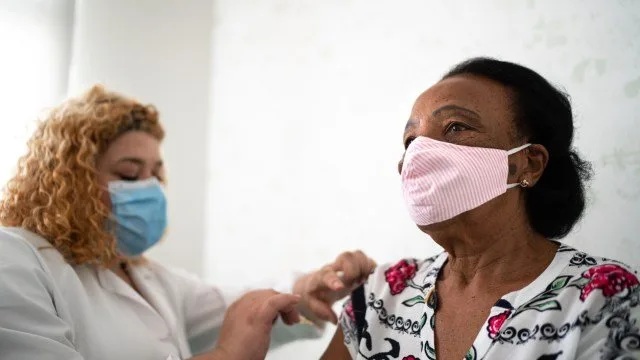Long Covid can be extremely debilitating and long-term for sufferers. The most common symptoms of Long Covid include pain, headaches, fatigue, “brain fog,” shortness of breath, anxiety, depression, fever, chronic cough, and sleep problems. Now, the US National Institutes of Health (NIH) has announced a project to get to grips with it. The NIH has awarded nearly $470 million to build a national study population of diverse research volunteers. The project will also support large-scale studies on the long-term effects of COVID-19.
There are millions of sufferers around the world
The Centers for Diseases Control and Prevention estimates 10% to 30% of COVID-19 patients develop Long Covid. Currently, worldwide COVID-19 cases exceed 219 million on the Johns Hopkins dashboard. Possible explanations include a hidden reservoir of SARS-CoV-2, a misfiring immune system, or a metabolic problem triggered by the infection. However, scientists do not know for sure. Therefore, this research should go a long way to providing a better understanding of the condition.
A commitment by Congress to studying Long Covid
In February, Congress announced an investment of $1.15 billion over 4 years to study the condition. In its official statement, the NIH says this recent award to NYU Langone supports new studies of COVID-19 survivors. It also leverages existing long-running large cohort studies with an expansion of its research focus.
“The NIH has launched the RECOVER Initiative to learn why some people have prolonged symptoms (referred to as long COVID) or develop new or returning symptoms after the acute phase of infection from SARS-CoV-2, the virus that causes COVID-19.”
“NIH deeply appreciates the contributions of patients who have not fully recovered from SARS-CoV-2 infection and who have offered their experiences and insights.… We now ask the patient, medical, and scientific communities to come together to help us understand the long-term effects of SARS-CoV-2 infection.” Francis Collins, MD, PhD Director, National Institutes of Health
Prevention and recovery
The research is a collaborative effort and existing data will be made available to the research teams. Scientists working on the project anticipate they will be able to accelerate the timeline for this project.
Data from the RECOVER Cohort will include clinical information, laboratory tests, and analyses of participants in various stages of recovery following SARS-CoV-2 infection.
“We know some people have had their lives completely upended by the major long-term effects of COVID-19,” said NIH Director Francis S. Collins, M.D., Ph.D. “These studies will aim to determine the cause and find much needed answers to prevent this often-debilitating condition and help those who suffer move toward recovery.”
This approach allows for data harmonization across research studies and study populations. Data harmonization allows data to be compared and analyzed, which will facilitate the research process and provide more robust findings.
“The only way we’re going to sort this out is with very large studies that collect lots and lots of data about symptoms, physical findings, and laboratory measures.” NIH Director Francis Collins
The study won’t test new treatments for Long Covid
According to an interview in Science, the study won’t itself test new treatments for Long Covid, “Its leaders will try to identify proteins or molecular processes that play a role in Long Covid and could be blocked with an existing drug. NIH hopes to find those targets within 18 months. They then want to launch treatment trials using its remaining congressional funding for Long Covid research.”
The program will begin in October. It will aim to enroll between 30,000 and 40,000 volunteers over 12 months from diverse populations in all 50 states.
Although some people who already have Long Covid will be studied, the majority will have acute infections—that is, they will have just fallen sick with COVID-19. The study will include hospitalized patients. It will also include those with milder COVID-19 cases—it’s not clear whether being sicker initially leads to more Long Covid.
References
About the National Institutes of Health (NIH)
The NIH, the nation’s medical research agency, includes 27 Institutes and Centers and is a component of the U.S. Department of Health and Human Services. NIH is the primary federal agency conducting and supporting basic, clinical, and translational medical research. It is also investigating the causes, treatments, and cures for both common and rare diseases. For more information about NIH and its programs, visit www.nih.gov.





![women [longevity live]](https://longevitylive.com/wp-content/uploads/2020/01/photo-of-women-walking-down-the-street-1116984-100x100.jpg)









